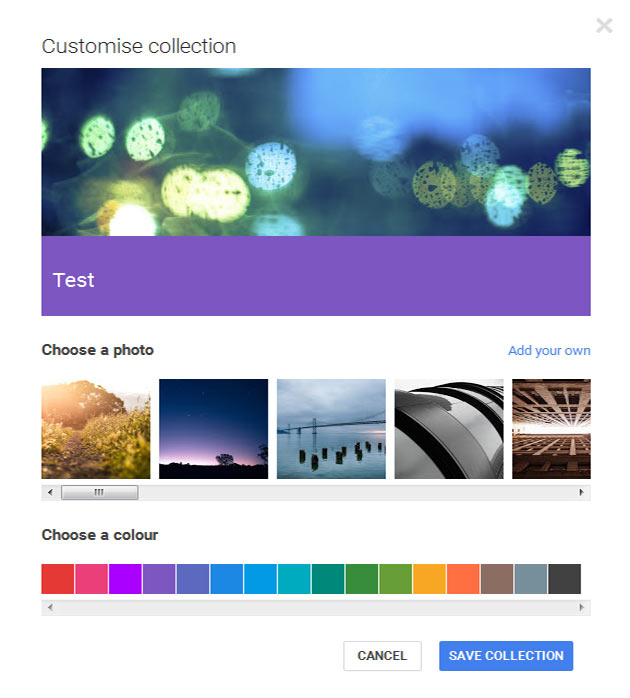Once you are up and running on Twitter it can be tricky to catch the best tweets or keep an eye on all of your mentions. TweetDeck and HootSuite attempt to solve those problems, with their user-friendly and functional interfaces really enforcing Twitter's place as a useful tool for businesses.
Update: Since we wrote this Twitter launched its new interface which is more user friendly to tempt people away from 3rd party Twitter clients.
The uninitiated may wonder what the fuss is all about, but these Twitter tools are highly addictive once you get started - the only problem is, which one should you use? Of course if you're new to Twitter and other social media platforms our social networking training in Brighton, Sussex, may be a help to get you started.
A Comparison of TweetDeck and HootSuite
These two tools have some shared benefits: keep on top of what's going on with customised and easy to manage columns; reply, re-tweet and direct message with a click; download a mobile phone application, and manage multiple accounts on Twitter or other social networks. The differences between HootSuite and TweetDeck are subtle, but may be key to which application you choose; read on for our comparison.
Aaron Charlie
19 Feb 2010
Yesterday marked the launch of Google+ Collections. I’d like to be less cliché than hailing it as Google’s answer to Pinterest at this early stage even though similarities are evident. 'Collections’ undeniably provides us with an easy, efficient way to organise and curate the best content from around the web.
Creating a collection is as simple as navigating to the ‘Collections’ tab underneath your cover photo and allocating your collection a name and its desired visibility. ‘Custom’ audiences are formed from a number of Google+ circles if you’re looking to refine your scope. Collections can also be set to – Only Me. This is my favourite aspect of collections thus far. Share the best posts or ideas from Google+ to your own private collection and create a drawing board for future articles, or simply as a personal bookmarking tool.
After creating your collection you are able to ‘customise’ your collection image and colour scheme. Note – it is not possible to change the visibility settings of a collection after it has gone live. From here on the collection and the content contained within is completely at the discretion of the user.
See Heather Buckley's 'Google Plus Collections and How to Use Them' for a comprehensive guide on creating collections.

Aaron Charli
5 May 2015
Yesterday marked the launch of Google+ Collections. I’d like to be less cliché than hailing it as Google’s answer to Pinterest at this early stage even though similarities are evident. 'Collections’ undeniably provides us with an easy, efficient way to organise and curate the best content from around the web.
Creating a collection is as simple as navigating to the ‘Collections’ tab underneath your cover photo and allocating your collection a name and its desired visibility. ‘Custom’ audiences are formed from a number of Google+ circles if you’re looking to refine your scope. Collections can also be set to – Only Me. This is my favourite aspect of collections thus far. Share the best posts or ideas from Google+ to your own private collection and create a drawing board for future articles, or simply as a personal bookmarking tool.
After creating your collection you are able to ‘customise’ your collection image and colour scheme. Note – it is not possible to change the visibility settings of a collection after it has gone live. From here on the collection and the content contained within is completely at the discretion of the user.
See Heather Buckley's 'Google Plus Collections and How to Use Them' for a comprehensive guide on creating collections.

Aaron Charli
5 May 2015
UPDATE JULY 2014: Google has now withdrawn authorship photos from SERPs. We still recommend implementing authorship as results will still have a byline and your content will rank better for your Google+ connections.

Possible name for Author Rank update in 2013: Shakespeare Panda
Two years ago, after attending a much smaller BrightonSEO, we wrote a post about the death of journalism. Now in 2012, at a much bigger BrightonSEO, James Carson believes it is rising from the grave to take back the internet from anonymous personas.
The importance of authorship on the internet was a hot topic on Friday. As well as James Carson’s excellent 20x20 presentation 'I Believe that Authors are The Future', it also came up in a number of the other talks and prompted some follow up discussion on Twitter and on blogs. Coincidently a blog post on authorship appeared on SEOmoz two days later.
Make sure you've read our other write ups of BrightonSEO including the 'Ask the Engines' panel, morning session, afternoon session and 20x20 talks.
The meat of James’ talk was that authorship will be important for SEO in the future as search engines look to find a suitable replacement for link ranking factors that have become skewed thanks to paid link building, link spam and the ongoing pursuit of SEOs to gain more and higher authority links to boost their rankings. Even social ranking factors aren’t that reliable due to paid followers and shares.
Craig Charley
18 Apr 2012
UPDATE JULY 2014: Google has now withdrawn authorship photos from SERPs. We still recommend implementing authorship as results will still have a byline and your content will rank better for your Google+ connections.

Possible name for Author Rank update in 2013: Shakespeare Panda
Two years ago, after attending a much smaller BrightonSEO, we wrote a post about the death of journalism. Now in 2012, at a much bigger BrightonSEO, James Carson believes it is rising from the grave to take back the internet from anonymous personas.
The importance of authorship on the internet was a hot topic on Friday. As well as James Carson’s excellent 20x20 presentation 'I Believe that Authors are The Future', it also came up in a number of the other talks and prompted some follow up discussion on Twitter and on blogs. Coincidently a blog post on authorship appeared on SEOmoz two days later.
Make sure you've read our other write ups of BrightonSEO including the 'Ask the Engines' panel, morning session, afternoon session and 20x20 talks.
The meat of James’ talk was that authorship will be important for SEO in the future as search engines look to find a suitable replacement for link ranking factors that have become skewed thanks to paid link building, link spam and the ongoing pursuit of SEOs to gain more and higher authority links to boost their rankings. Even social ranking factors aren’t that reliable due to paid followers and shares.
Craig Charley
18 Apr 2012
How to Find Influencers on Twitter...“Are they good friends on Twitter?” is an important question to ask when you are marketing using social media especially for specific business campaigns. We cover a variety of Twitter strategies on our Social Media Course, and you can learn more about online marketing on our Blogging Training and Google Analytics courses in Brighton, Sussex. But, what is a “good friend” on Twitter? It is not about the traditional friendship. In this case, we are talking about business - and to connect with people that we know are “influencers” on Twitter, means, they have a lot of |
|
followers and their followers are in the audience that you want to achieve. They can be journalists that report about your industry, colleagues, partners, or even competitors that can add value to your own profile when they interact with you.
So, how can you find “influencers”?
Aaron Charlie
21 Jul 2010
How to Find Influencers on Twitter...“Are they good friends on Twitter?” is an important question to ask when you are marketing using social media especially for specific business campaigns. We cover a variety of Twitter strategies on our Social Media Course, and you can learn more about online marketing on our Blogging Training and Google Analytics courses in Brighton, Sussex. But, what is a “good friend” on Twitter? It is not about the traditional friendship. In this case, we are talking about business - and to connect with people that we know are “influencers” on Twitter, means, they have a lot of |
|
followers and their followers are in the audience that you want to achieve. They can be journalists that report about your industry, colleagues, partners, or even competitors that can add value to your own profile when they interact with you.
So, how can you find “influencers”?
Aaron Charlie
21 Jul 2010
10 years ago I was writing my dissertation on Women and the Internet.It was a revelation then how women were using this relatively new medium (new as in 'popular and accessible') to communicate, connect and network. Previously technological gadgets, including computers, were largely bought by men - toys for boys. The internet changed all that.
Last night I attended a talk by Miss Aniela, whose rapid rise to fame was due to her immersion in social media, firstly by using Flickr and more recently Facebook and Twitter. Those interested in building up their own online presence using social media may be interested in our training courses.
You can learn more about marketing your business or organisation via Facebook on our Social Media Training course. We also run regular creative courses including Photoshop Training & InDesign training in Brighton.

Now 10 years after the internet changed the way women interacted with computers another wave of change is upon us. Social media networks have seen phenomenal growth in terms of numbers of users both for individuals and business. The biggest growth can be seen in the number of women using social networks on a regular basis. Women now outnumber men on the following networks:
- Facebook: 57 percent women users.
- Twitter: 57 percent women users.
- Flickr: 55 percent women users.
Source: Information is Beautiful
Why Do you Think That is?
Look at the statistics from the 2009 Women and Social Media Study By BlogHer, iVillage and Compass Partners
Women who blog were asked what motivated them to blog. These were the results:
- 76% for fun
- 73% Express myself
- 59% Connect with others like me
- 54% Personal record or diary
- 37% To give advice/educate
- 33 % Positive reactions and feedback from my audience
- 29% Establish or contribute to a community
- 25% To reach large audience
- 22% To persuade others/advocate
- 21% Promote my skills or my business
- 17% Earn money
I think although I have no data to back this up, that if you asked most businesses why they would consider using social media to promote their business you could practically reverse the above stats. It's not that it's a bad thing to want to be successful in business, to want to promote yourself or to make money or sell. It's just that in order to do these things using social media you need to do the other stuff first - listen, give, communicate - otherwise it won't work.
Heather Buckley
11 Nov 2009
